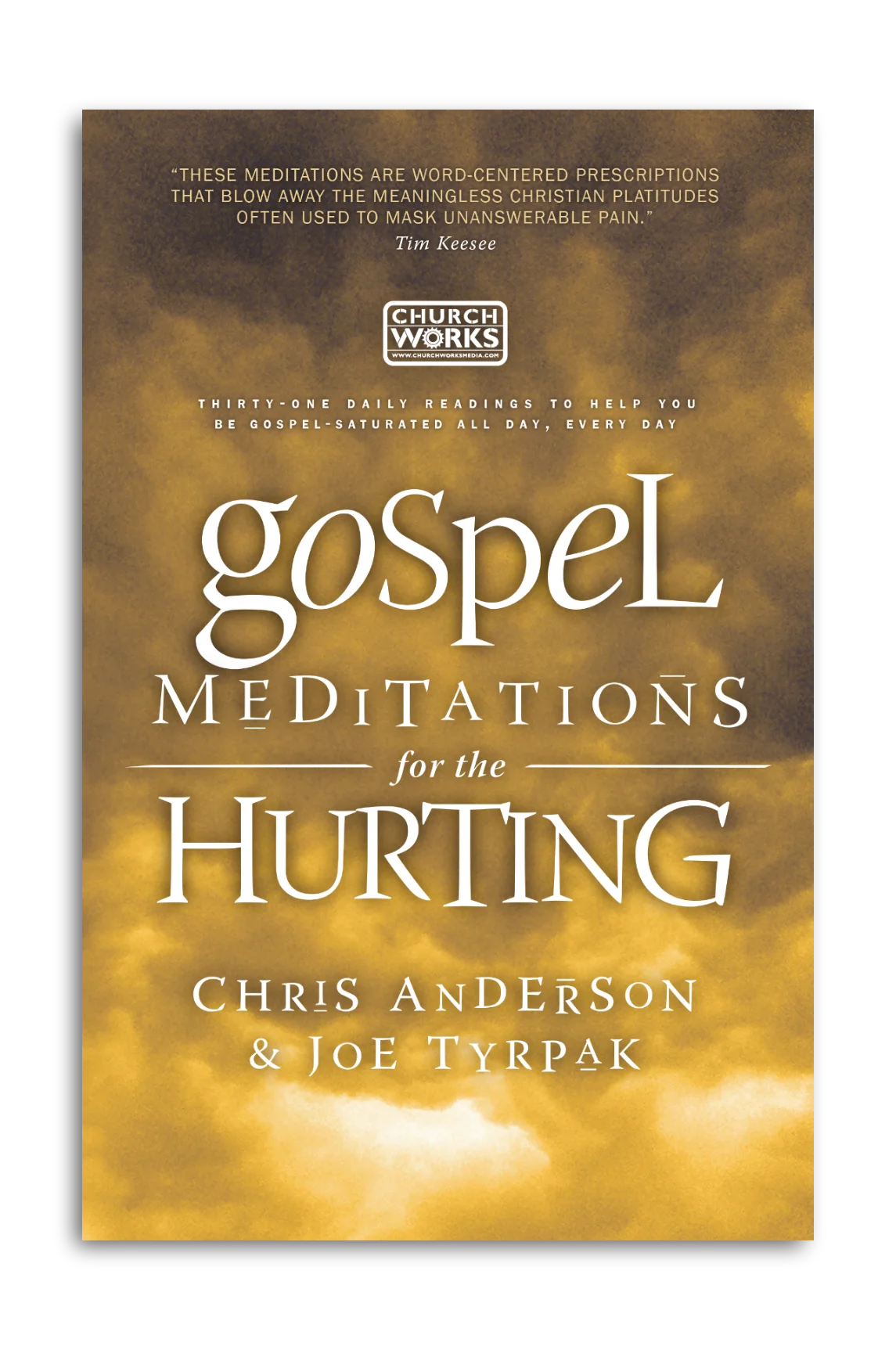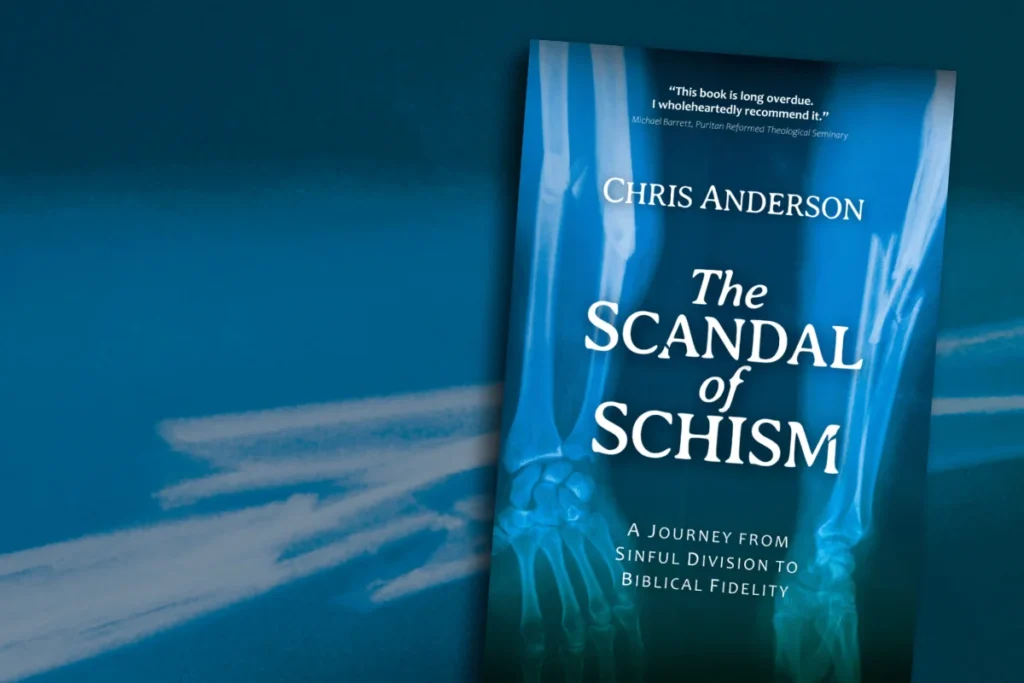
Blog
Are You Exhausted?

This reading by Joe Tyrpak comes from Gospel Meditations for the Hurting (Day 19), which deals with practical implications of the resurrection of Jesus.
Read 1 Corinthians 15
“Be steadfast, immovable, always abounding in the work of the Lord.” — 1 Corinthians 15:58
In 1 Corinthians, Paul addresses a laundry list of problems—arrogance and church divisions (chapters 1–4), wrong views of tolerance (chapters 5–6), errant views on sexuality (chapters 6–7), selfish views of Christian liberty (chapters 8–11), and worship services doing more harm than good (chapters 11–14). In chapter 15 Paul deals with yet another problem: Some in the church were denying that Christians would experience a bodily resurrection. Paul confronts this error directly, and his answer provides comfort for exhausted believers.
Remember that the gospel includes the resurrection (vv. 1–11)
At the heart of the gospel are four monumental facts: Jesus’ death and accompanying burial, and Jesus’ resurrection and accompanying appearances. The burial proves He was really dead, and the many appearances prove He was really alive. This good news must be personally received (vv. 1–2).
Consider the implications if there is no resurrection (vv. 12–19)
Paul poses seven hypothetical consequences if Jesus hadn’t risen. If the resurrection never happened, Paul’s preaching is bogus, the faith of Christians is worthless, our loved ones who have died are gone forever, and we should be pitied as imbeciles (15:13–19). Even though the Christians in Corinth weren’t directly questioning Jesus’ resurrection, Paul shows how they were indirectly denying it. He says, in effect, “If you can’t believe the general rule that God will raise the dead, then that would have to apply to Christ, too” (15:16).
Think theologically about Jesus’ resurrection (vv. 20–34)
Jesus was raised from the dead as the firstfruits. Thus, His resurrection shows not only that the harvest is coming, but that it’s already begun! Paul’s teaching regarding the first Adam and the last Adam is very similar to what he wrote in Romans 5 where he argued, “If you’re in Adam, you’re condemned; if you’re in Christ, you’re justified.” Here he says, “If you’re in Adam, you die; if you’re in Christ, you get raised.” So, every human should ask, “Am I in Adam or in Christ?”
Get answers to your questions about the resurrection (vv. 35–49)
The Corinthians questioned how the resurrection would happen and what kind of body would be raised. Paul gives simple answers: If God knows how to create all kinds of physical things—including people, birds, fish, and stars—then a resurrection body isn’t too hard for Him.
Apply the resurrection truth to the looming reality of death (vv. 50–58)
Finally, Paul reveals a mystery, something God had not previously revealed with this much clarity. In the previous section, he answered the question how; here he answers the question when. For believers, physical death is not the end. When Jesus returns, death will be conquered, and we will be raised instantaneously and given resurrection bodies. At that moment “the Lord will swallow up death for all time” (Isaiah 25:8). Jesus removes the terrifying fierceness of death for every Christian. (Notice how He turns Hosea 13:14 on its head!)
Most of this chapter is hard facts—facts to which every person must respond. You must believe the resurrection, especially in view of the empty tomb, the five hundred witnesses, and the disciples’ changed lives and risky boldness—including Paul’s! Once you believe these truths, Christian, you must live them out. Pursue holiness in your body. There’s more to holiness than physical health, but eating, exercising, sleeping, and working should all be done to God’s glory—because what you do in your body (that will be raised) matters.
The resurrection of Jesus has practical implications for how we work and what we do with our bodies (which will be raised)
The chapter’s final verse (which makes a great theme verse for life) challenges you to endure hardships because of the resurrection. Notice the words work and labor. The Christian life is dominated by physically exhausting ministry. Christ never promised ease. Fighting sin is hard work. Praying is hard work. Loving your spouse is hard work. Raising children for Christ is hard work. Providing for your family is hard work. Caring for your aging parents is hard work. Consistently getting to church gatherings is hard work. Serving in children’s ministry is hard work. Forbearing with annoying Christians is hard work. How easy it would be to stop working and simply pursue comfort! A comfort-driven life would be fine if we didn’t have the hope of resurrection.
But Jesus has been raised, and we will be, too. So remain committed to a life of toil for Christ. It will be worth it all.
Let the gospel lead you to embrace exhausting toil for Jesus’ sake.
Explore the whole book!
The Bible is a book about suffering, written by sufferers, for sufferers. It is a gritty book. And that’s good, because life is gritty. Pastors Chris Anderson and Joe Tyrpak ministered side-by-side for years helping the hurting in person; now they’re glad to help the hurting through the pages of these 31 devotionals, written to encourage believers, whether they’re struggling with discouragement themselves or wanting to help to those who are.













